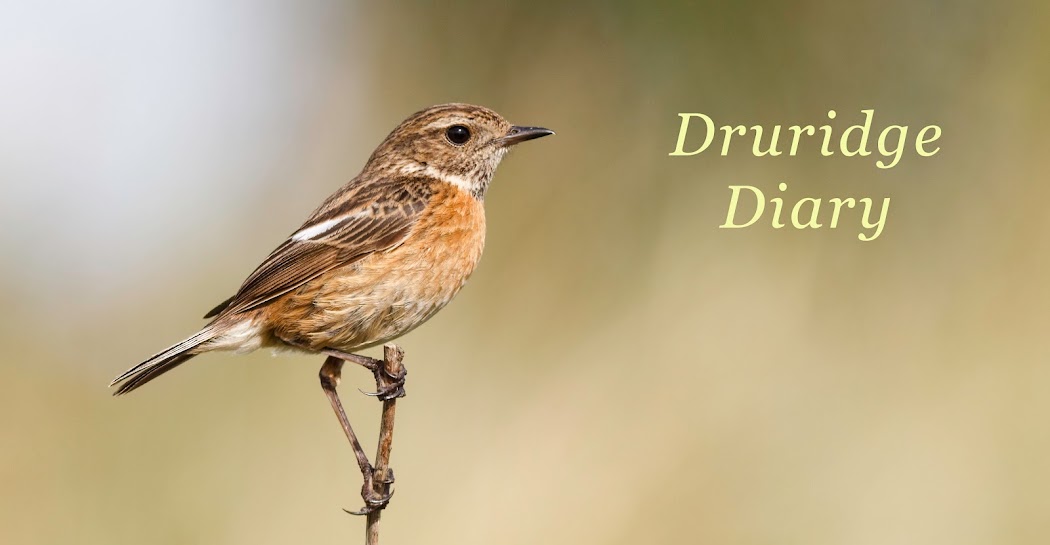To make up for long-days, I took a half-day today to get the nets up at Druridge. Ringing was slow, catching ten or so warblers, sedge, willow, whitethroat and blackcap. We bumped into Mike Hodgson, he spotted a cuckoo flying over the road, first at Duridge this year, I remarked "hope it's flown into out net" - well it did.
Ageing and sexing it has proved somewhat tricky however. We are sure it isn't a juvenile or an adult male. Which leaves the female, which in cuckoo comes in two morphs - grey, very much like the male, and brown or rufous.
Our bird showed some of the characteristics of a brown morph female but not all, more like something in between. A trawl of internet images hasn't helped much, other than apparently ruling out a juvenile due to the lack of white fringing on the upperparts. Looking at Collins, the brown morph is barred dark/rufous brown and the upper tail/rump are also rufous brown, our bird had a grey/brown uppertail and rump.
This bird http://www.pbase.com/charlie_fleming/image/113357739/large has a grey/brown uppertail. This one closely resembles our bird and has been labelled 'hepatic morph female' http://www.flickr.com/photos/nigelblake/3118599073/.
Seemingly there is much variation - Any thoughts?
This is the second cuckoo caught and ringed at Druridge, Janet caught an adult may here in July 2007. This one was a ringing-tick for me.
Here are a couple of other photos from today's ringing.
 |
| juvenile robin |
 |
| Fresh juvenile sedge warbler |
 |
| juvenile blackcap |
Last night, about 8.30pm, the sea was like a millpond, with a light pink sky as the sun started to set. I was watching a 'gang' of arctic skuas harassing the terns on their way north to Coquet Island - I counted at least six by the end of the night. The highlight was mammalian, rather than avian - a pod of white-beaked dolphins about half-way out, visible with the naked eye because the sea was so flat. At first they were in a tight group, with much activity, before spreading out over 300-400 metres. Amazing!
yesterday I had both green and wood sandpipers on the big pool and on Saturday evening I watched a little egret going into roost in the heronry -amazingly, my first of the year!
133 garden warbler
134 great-spotted woodpecker
135 little egret
136 green sandpiper
137 merlin
138 cuckoo




You couldn't just trap a normal run of the mill Cuckoo could you!!
ReplyDeleteNice bird though :-)
re the cuckoo. I've just sent an e-mail to your Hotmail account. See what you think.
ReplyDeleteAye its a strange one. Oriental Cuckoo I reckon....
ReplyDeleteAlan - didn't get your email?
ReplyDeletesome suggestions that it is a '5' - ringing speak for born last year calender year. They don't breed in the first year, so it has come all this way just for a look about. Moult in cuckoos isn't straightforward...It may have retained some juvenile feathers (brown) and grown some adult grey ones??
I've forwarded it to your other address.
ReplyDelete